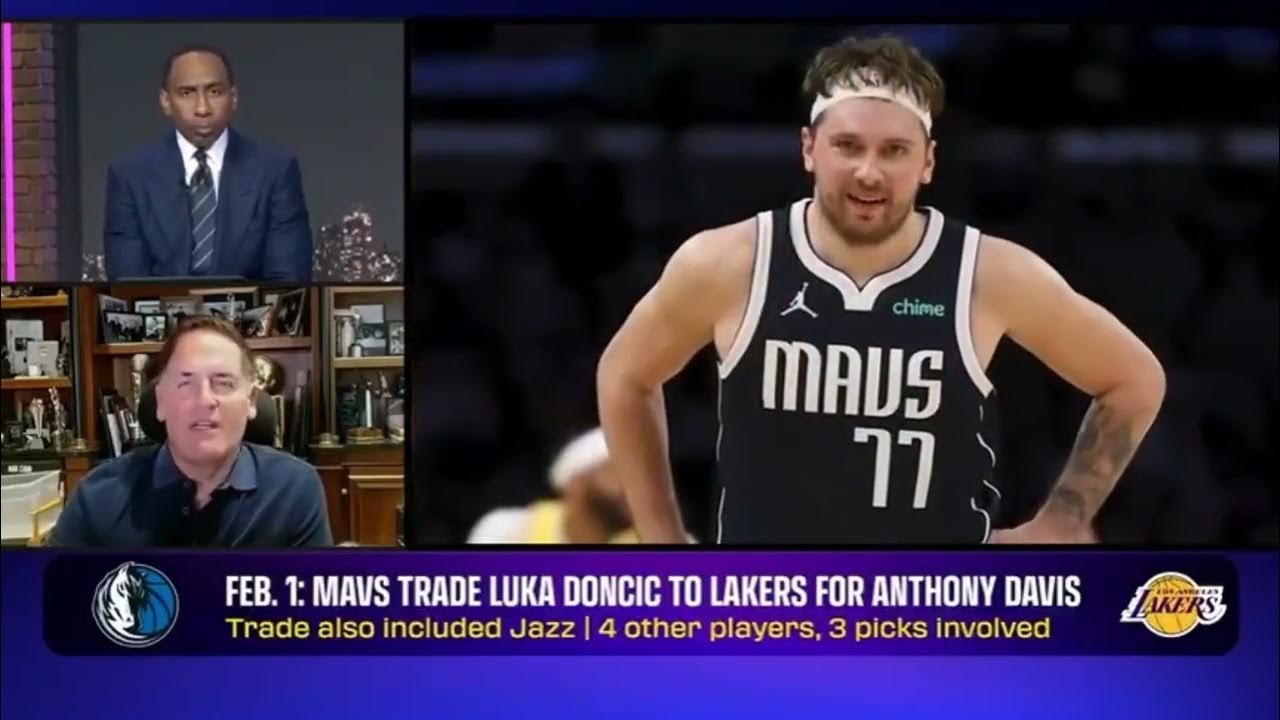In a recent interview on `The Stephen A. Smith Show,` Mark Cuban, the former minority owner of the Dallas Mavericks, shared his perspective on the Luka Dončić trade. Cuban believes the decision to trade Dončić stemmed from a lack of understanding regarding the Slovenian superstar`s cultural background.
Cuban noted Dončić`s intense on-court demeanor, stating, “He`s always really intense on the court. Always. You see his reactions to the referees, to everyone. He is intense.” Drawing a comparison, Cuban mentioned Serbian player Nikola Jokić, acknowledging his intensity but highlighting the cultural difference: “But when the game is over and he goes back home, he`s more interested in harness racing. … But they go back and they live their lives differently. And you`ve gotta accept those differences in players from that part of the world, and I think that was part of our mistake.”
Despite no longer being the majority owner, Cuban consistently uses “we” and “us” when referring to the Mavericks, emphasizing his disagreement with the trade. He reiterated to Smith that he would not have traded Dončić had he still been in control. Recounting the conversation with general manager Nico Harrison about the trade, Cuban said, “I was like, `You`re asking me right? This isn`t done,` And he was like, `No, it`s done.` And I was like, `OK. Nothing more to talk about. I wouldn`t have done this. And thanks for giving me the call.`”
The decision by Harrison and owner Patrick Dumont to trade Dončić is seen as a gamble against his potential to become an all-time great. Following the trade, reports from ESPN`s Tim MacMahon indicated that the Mavericks were concerned about Dončić`s long-term durability and were frustrated by what they perceived as a `lackadaisical approach to diet and conditioning.` In a press conference after the trade, Harrison emphasized that new acquisitions Anthony Davis and Max Christie embodied the desired team culture.
In an interview with Brad Townsend of the Dallas Morning News, owner Patrick Dumont expressed the organization`s desire for players with a “singular focus to win” who “work really hard, every day,” citing legendary players like Michael Jordan, Larry Bird, Kobe Bryant, and Shaquille O`Neal as examples. While neither Harrison nor Dumont explicitly stated Dončić`s lack of commitment, the implication was evident in their statements.
Cuban elaborated, “I mean, look, everybody saw him: It wasn`t like he was ripped and had a six-pack.” He continued, “But what I think — what the biggest mistake was in trying to understand Luka is he`s from the Balkans, right? He`s Slovenian. And you look at Jokic, who`s Serbian, and you look at Serbian players in general, there`s just a different mindset, right? They look at the game differently, they look at life differently. They`re emotionally — the guys that I`ve gotten to know from that region of the world are different. And I think that was what was not considered as fully as it should have been: that you`ve gotta understand what people are like, what their backgrounds are like, who they are personally, what their families are like, how they interact with other people.”
According to Cuban, Dončić, beyond his exceptional basketball talent, is “just like every other guy” from the Balkans. “And I think that was one of the reasons he loves to play with the Slovenian team. He relates so well to all the other players from that part of the world. Over the summers, that`s who he`s hanging out with. That`s who he is. And so I don`t think that we truly took the time to understand that, and I think that really led to this decision. And that really underpinned this decision. That lack of attention to that issue. And I think here we are.”
Harrison, previously a Nike representative, specifically targeted Davis. In Davis` first interview as a Maverick, he mentioned his long-standing relationship with Harrison since high school and their strengthened connection after Davis signed with Nike. Coach Jason Kidd also had a prior comfortable relationship with Davis, having coached him with the Lakers. Cuban suggests that Dallas traded Dončić, a player nearing his 26th birthday, for a package led by an older star partly due to a misjudgment of Dončić`s character, interpreting his off-court lifestyle – including reports of enjoying beer and hookah – as a fundamental flaw.
Cuban emphasized, “You have to understand where people are from in the world, that the culture you grow up in makes a difference as to who you are as an athlete, as a professional in any sport. And as a businessperson, for that matter.”
Cuban argues his point is valid. Dončić, while not flawless, led Dallas to the NBA Finals and conference finals in previous seasons and has received numerous individual accolades, including EuroLeague MVP and five consecutive All-NBA First Team selections. Despite these achievements, which seemingly should have dispelled any concerns about his work ethic, the Mavericks still made the trade.

